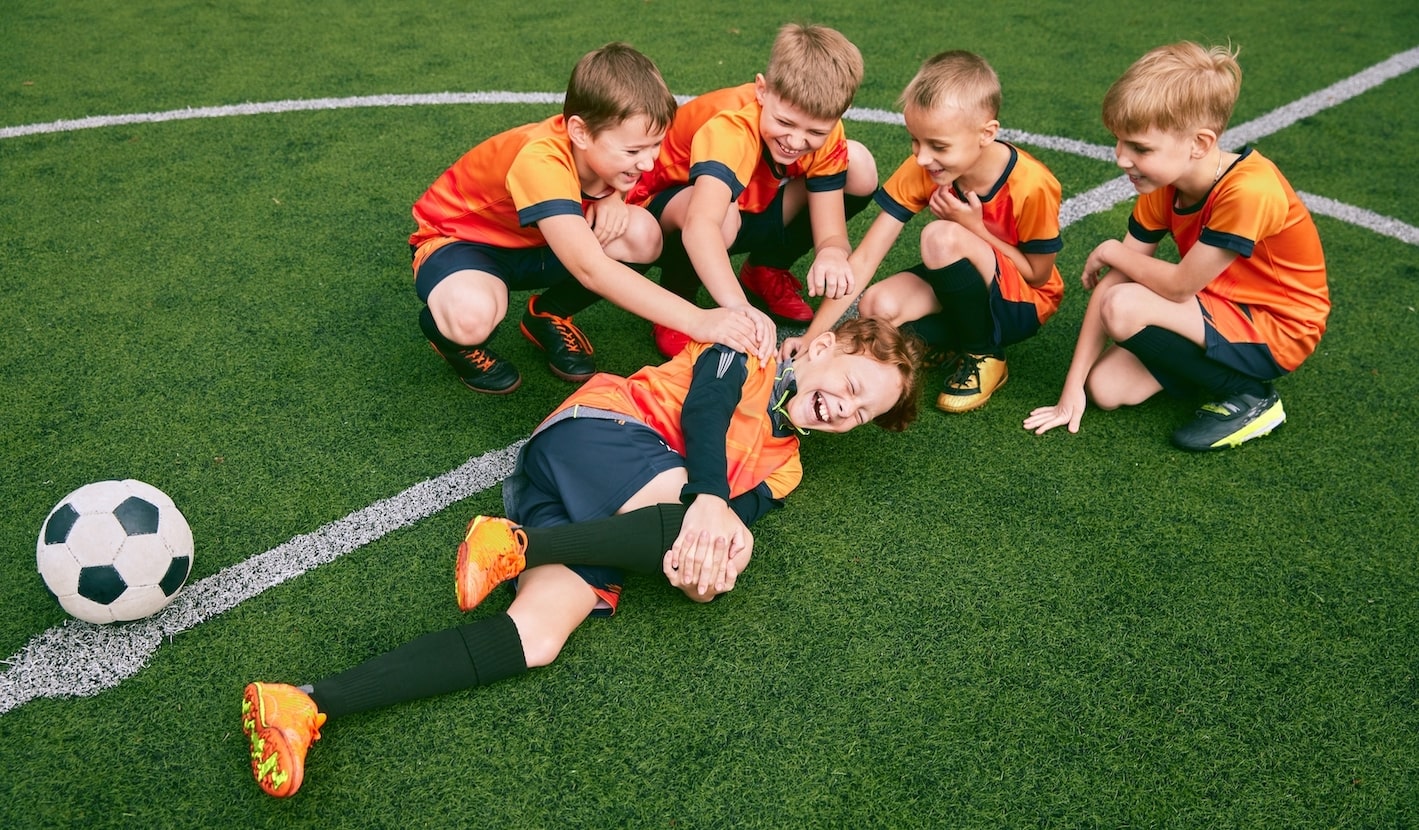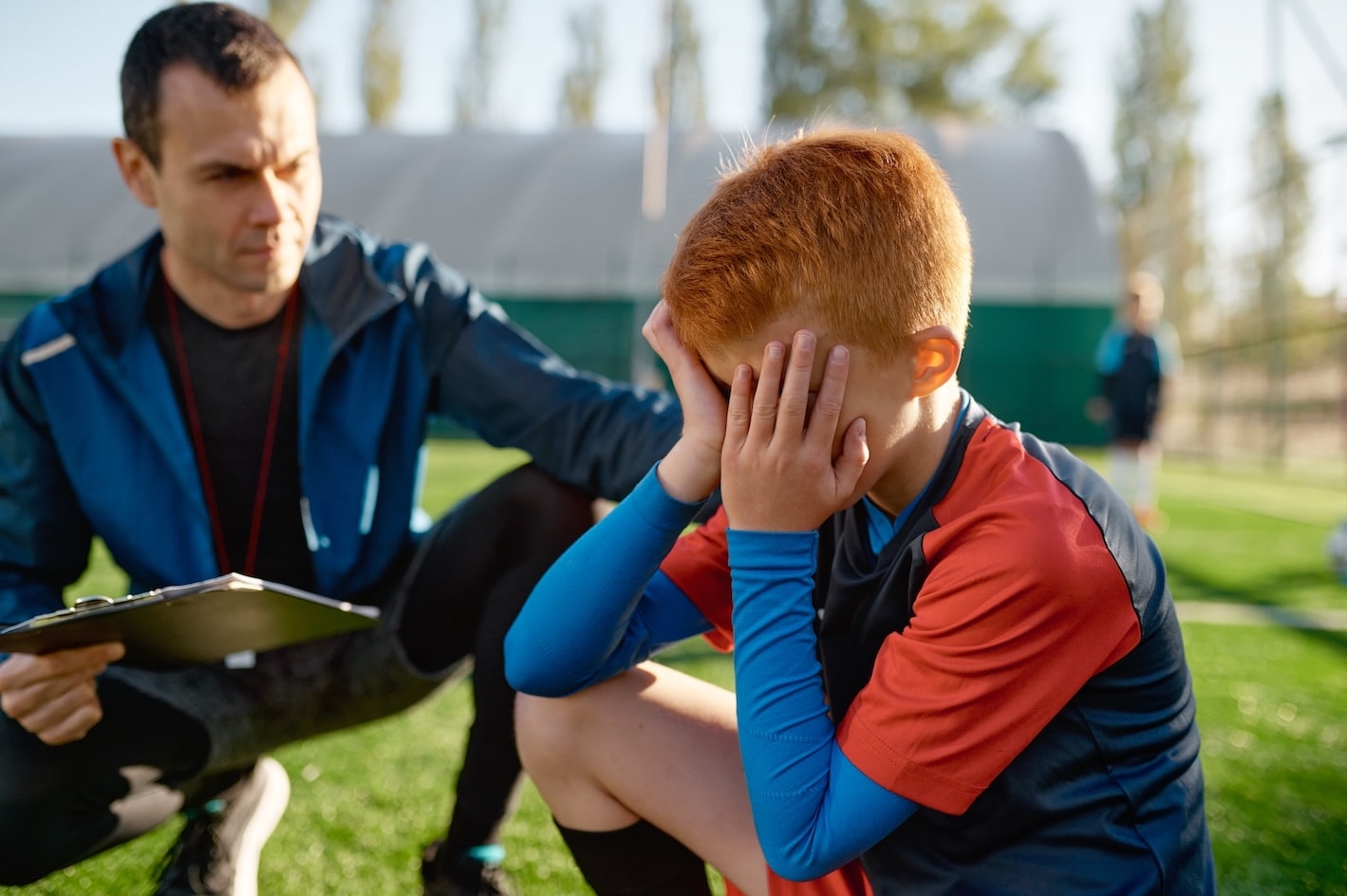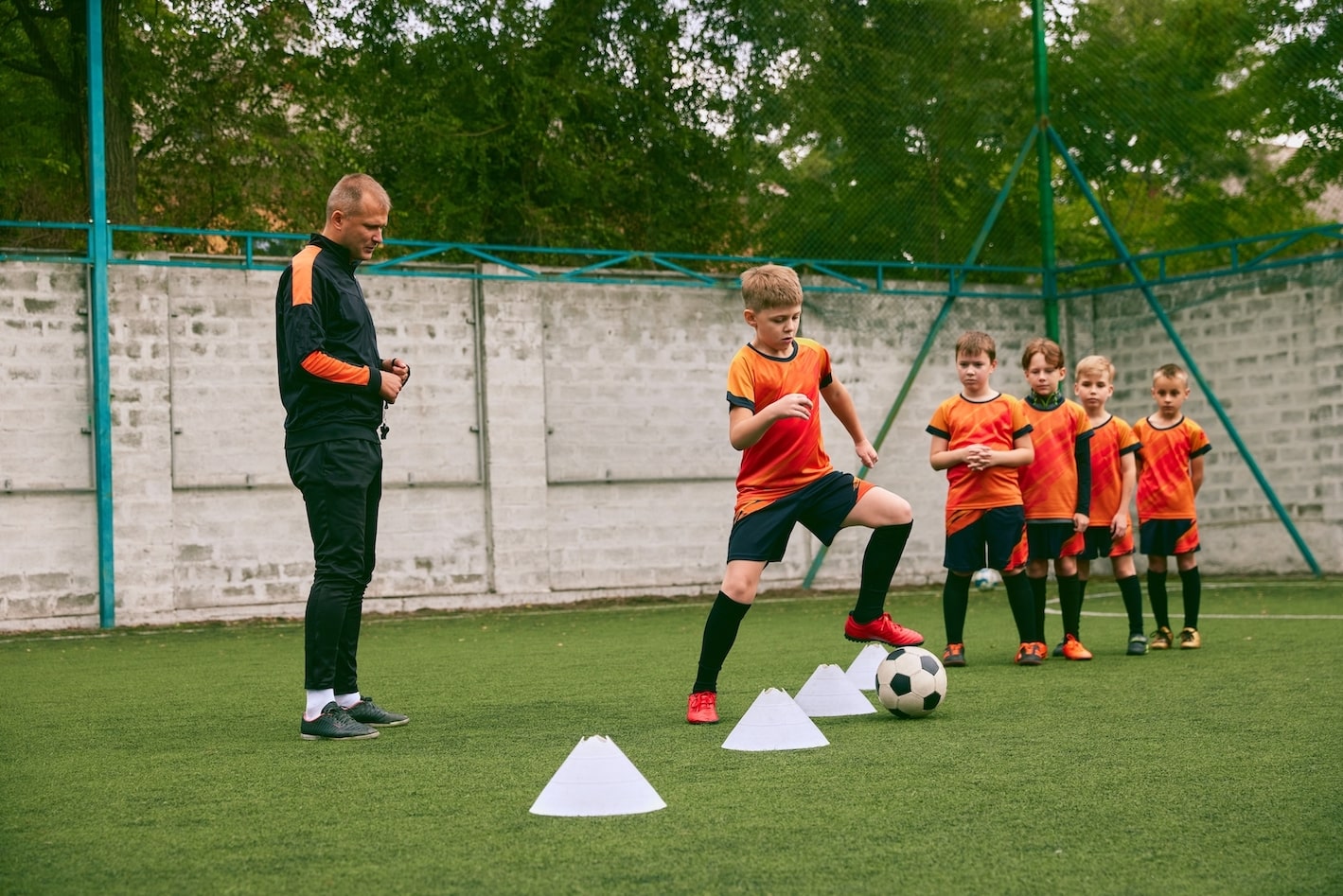Share it
How the psychological part of the game affects youth players during training and matches – here we look at the FA's four corner model and how psychological factors fit into that.
Football is the most popular sport in the world. Millions of kids play this sport every day and they dream to become professional football players in the future. Also in everyday training and matches, we see parents and the family of the players who are very dedicated towards their kids or family member to help them in the pursuit of their dream.
Based on the FA four corner model, the 4 key areas in which the coaches need to consider their team's progress are: social, physical, technical/tactical, and psychological. All these 4 corners are related to each other and equally important and no corner works in isolation. In the past coaches, staff, and members of the football club didn't put so much importance on the psychological aspect of their players, especially regarding the young ages.
They were more focused on the results and the technical/tactical part and didn't have the right awareness regarding the psychological aspect that especially in that age group affects a lot of the kids in their performances in the training and matches.
What is Psychology?
Before entering into details about how the psychological part affects the young players or kids, we need to know exactly what is psychology or especially what is football sports psychology. Football sports psychology is a specific branch of psychology science that deals with all aspects of mental health, behavior, and human performance.
It is a study of the mind, how it works, and also how people think, feel, and behave. Now every club and academy is putting more attention to this important aspect of their players, they are organizing different workshops and seminars regarding the psychological part and are creating structures and materials for this topic to make the players feel better and better every day.
Also in most football academies, psychologists are working as permanent members of the clubs with the unique scope of helping the kids.

Behind football sports, psychology is the idea that the collective mental state of the team determines if they will succeed or will fail. Also is worth mentioning that when young football player has a better understanding of their feelings and thoughts they can make better decisions on the field which can lead to better performances.
Football psychology in the past was not recognized as an official discipline of psychology but in the last years the situation has changed a lot and it has been recognized as an official discipline. Also, another important trend that we can see in the last period is the surveys made by prestigious associations and universities regarding this topic.
Psychology and performance
In a survey made by the American Psychological Association, it was found that a little more than 50% of young players use some type of psychological technique to boost their performance. Also in this survey was found that 80% of the players think that using sport psychology helps them perform better. Another important study was that made by the University of Surrey.
In this study was found that nine out of ten young professional footballers use psychology to help them perform better. Another study found that one in five footballers was interested in seeing how this could help their game and the performances they do.
In the case of a young player or kid, many reasons or factors affect his psychological aspect, and responsible for it are everybody from the coaches to the parents, to the situation at the school or home, his friends at the school or the team, the parents of the other players, the opponent players also the referees and in the last period an important role is playing the social media. In different aspects, every person mentioned above it may contribute positively or negatively to the psychological part of the young player.
And this affects very much the player's performance in the training every day but also during the game. In the last years, an important role in putting more attention to this aspect of young players has been played by The FA. The Football Association has published different regulations or documents of guidance regarding the mental health or the psychological part of a football player.

It is important to remember that the players of this age group have a different mental health or psychological preparation from the adult players also an important factor to consider is that kids or young players are different from each other and it needs to be careful because the way how one factor affects their psychological part is different from how the same factor can affect the psychological part of the other player.
Any early signs of not being from the psychological aspect well should be looked at carefully from the first moment because it can lead to some bad situations for the kids involved for example depression etc.
Every different member that are around the young players affects their behaviors and gestures in different aspect of the psychological part. Some of the different aspects of the psychological part of a kid are confidence, motivation, concentration, resilience, discipline, anxiety, mindset, strength, weakness, pressure, feeling of loneliness, aggregation, and exclusion.
Coaches and Parents
The main actors that affect the most regarding this topic are the coaches and the parents. These two are responsible a lot regarding how the young player reacts and perform in training or matches in a good or negative way. Some of the coaches make big mistakes because they put too much importance on winning and this put too much pressure on the kids during the training or matches.
Also, the way how the coaches interact with the young players or the way how he criticizes them for a mistake may bring the young players negative effects like loss of confidence in themselves, loss of motivation towards coming to the training or match, and also anxiety to them.
Or another way round, if the coach deals in a positive way with the mistake a young player or kid do during the training or matches then the player will be more confident in themselves and will have a bigger motivation and will come with a smile every day and it will affect positively the performances on the pitch. Also regarding the parents, they need to be very careful regarding how they react when their kid makes a mistake during training or matches. They shouldn't be shouting or yelling at their kids because it makes them more nervous and anxious and put their confidence at its lowest point but they should encourage them and be supportive towards them on every occasion.

Important factors in the way how the young players behave and perform in the training and matches are also the situation at their home and also at their school. They are two main places where the young players pass most of the time of their day and if they aren't happy in these two places and have different problems there this would affect also they way how they come to the training or matches, the way how they kids behave and perform.
Friends in the team and social media
Another factor that affects a lot in young player's mental health or psychological part is the way how his friends at school or on the team behave with him. Because his friends in these two places behave badly with him or bully him the young player will feel anxious, depressed, and excluded from the rest and this will make a negative impact on him and the way how he will perform and behave.
Also, the parents of the other players may affect negatively or positively the psychological aspect of a young player. This would happen through their comments during the training or matches which can be supportive also when he made a mistake but also negative and this would lead to a bigger pressure for the young players and an impact on his confidence.
The opponent players may affect the young player negatively during the matches by provoking him and in this way, the player is not anymore calm and can't perform well as before due to not being composed. Instead, the referee affects negatively the young player during the match by not giving him a foul and in this way the player is furious and has not had the right calmness to do his actions. And in the last years, a more and more important role is being played by social media like Facebook, Instagram, Snapchat, etc.
These platforms have brought closer football players to the people and can be used in positive ways but also they can harm the mental health of young players. This comes from the negative comments that people can do towards this young player for a mistake he makes and maybe some people are not conscious regarding the power of their comments which can bring the end of the career for this young player and more serious mental health problems like depression etc.

The message to take away
In the end, we can say that nowadays more and more the psychological part of young players or kids is getting attention from the specialist and things are changing. Now football institutions are moving toward this problem and trying to solve it and people are paying more attention to it.
The main message regarding this factor is that everybody of us plays an important role and should be careful about it and that in the end, the way how these kids are treated now plays a decisive factor in how they will be raised and what kind of people they will become.